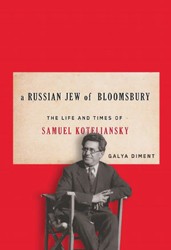By
– September 13, 2011
Jewish literature is rife with stories of the Holocaust and the establishment of Israel, but Leon Uris’s 1958 novel Exodus used history to make history. A worldwide phenomenon, Uris’s Exodus galvanized worldwide Jewry and helped establish an international Jewish identity. After World War II, most nations, including British controlled Palestine, were surprisingly unwilling to accept Jewish refugees. A testament to Jewish resourcefulness, the Jews of the world worked together, often illegally in the eyes of their respective nations, to shuttle their brethren into the land that would become the State of Israel.
Exodus fictionalizes the inspirational story of the ship Exodus 1947, which carried more than 4,500 displaced Holocaust victims to the Holy Land. Three books on Exodus have recently been released, proving its impact some 50 years after it first went to print. When viewed together these three scholarly volumes, not unlike movements in a symphony, paint a comprehensive picture of Exodus: Gordon Thomas’s Operation Exodus depicts the historical events of the harrowing episode, Ira Nadel’s biography, Leon Uris, illuminates the man behind the phenomenon, and M.M Silver’s Our Exodus focuses on the astonishing impact of the novel on worldwide Jewry.
Gordon Thomas’s non-fictional accounting weaves myriad sources and leads the reader through the ship’s chilling journey. Juxtaposing the varied roles of Jews across three continents, Thomas builds suspense as each piece of the scheme comes together, then suddenly unravels with the ship’s capture. Multiple generations have experienced the story of Exodus 1947 through Uris’s book or the film adaptation, and it is illuminating to contrast this version with the actual events.
Sometimes, though, the truth isn’t as important as the emotive qualities of a story. In Our Exodus, M.M. Silver takes the position that Uris “shattered wellemplaced barriers, and blasted open new cultural possibilities.” Focusing on the cultural impacts of the novel rather than the event itself, Silver posits that Exodus was not only integral to boosting Jewish self-confidence, but also a Zionist public relations coup, instrumental in forming a common identity among Jews across the globe. The most engaging of the three books, Silver’s critical essay strikes a healthy balance between theory, analysis, and story-telling.
Nadel pulls back the curtain to reveal the master behind the novel, along with the skeletons in his closet. Uris’s life is filled with impressive events that helped lay the foundation to the creation of Exodus— unfortunately Nadel’s Leon Uris flows like most biographies, slow-paced, excessively focused on timeline, with a dearth of enthusiastic prose. Readers interested in delving deeper into his life and the events that allowed for the creation of his seminal work will do best focusing on Silver’s offering.
Overall, Silver’s book combines the primary focuses of the other two, and then builds on their premises. He provides a comprehensive reading experience, offering insight into the life of Leon Uris, the history of Exodus 1947, and most engagingly, the rippling, layered effect of Uris’s impressive novel on worldwide Jewry. M.M. Silver delivers a clarity and intimacy rarely found in a work of literary criticism.
Exodus fictionalizes the inspirational story of the ship Exodus 1947, which carried more than 4,500 displaced Holocaust victims to the Holy Land. Three books on Exodus have recently been released, proving its impact some 50 years after it first went to print. When viewed together these three scholarly volumes, not unlike movements in a symphony, paint a comprehensive picture of Exodus: Gordon Thomas’s Operation Exodus depicts the historical events of the harrowing episode, Ira Nadel’s biography, Leon Uris, illuminates the man behind the phenomenon, and M.M Silver’s Our Exodus focuses on the astonishing impact of the novel on worldwide Jewry.
Gordon Thomas’s non-fictional accounting weaves myriad sources and leads the reader through the ship’s chilling journey. Juxtaposing the varied roles of Jews across three continents, Thomas builds suspense as each piece of the scheme comes together, then suddenly unravels with the ship’s capture. Multiple generations have experienced the story of Exodus 1947 through Uris’s book or the film adaptation, and it is illuminating to contrast this version with the actual events.
Sometimes, though, the truth isn’t as important as the emotive qualities of a story. In Our Exodus, M.M. Silver takes the position that Uris “shattered wellemplaced barriers, and blasted open new cultural possibilities.” Focusing on the cultural impacts of the novel rather than the event itself, Silver posits that Exodus was not only integral to boosting Jewish self-confidence, but also a Zionist public relations coup, instrumental in forming a common identity among Jews across the globe. The most engaging of the three books, Silver’s critical essay strikes a healthy balance between theory, analysis, and story-telling.
Nadel pulls back the curtain to reveal the master behind the novel, along with the skeletons in his closet. Uris’s life is filled with impressive events that helped lay the foundation to the creation of Exodus— unfortunately Nadel’s Leon Uris flows like most biographies, slow-paced, excessively focused on timeline, with a dearth of enthusiastic prose. Readers interested in delving deeper into his life and the events that allowed for the creation of his seminal work will do best focusing on Silver’s offering.
Overall, Silver’s book combines the primary focuses of the other two, and then builds on their premises. He provides a comprehensive reading experience, offering insight into the life of Leon Uris, the history of Exodus 1947, and most engagingly, the rippling, layered effect of Uris’s impressive novel on worldwide Jewry. M.M. Silver delivers a clarity and intimacy rarely found in a work of literary criticism.
Additional books featured in this review
Robert Cohen is Executive Producer for InTheMO. He graduated with a B.A. from Emory University in History in Economics, and an MBA from Salzburg Management Business School with a focus in Cultural Management.





